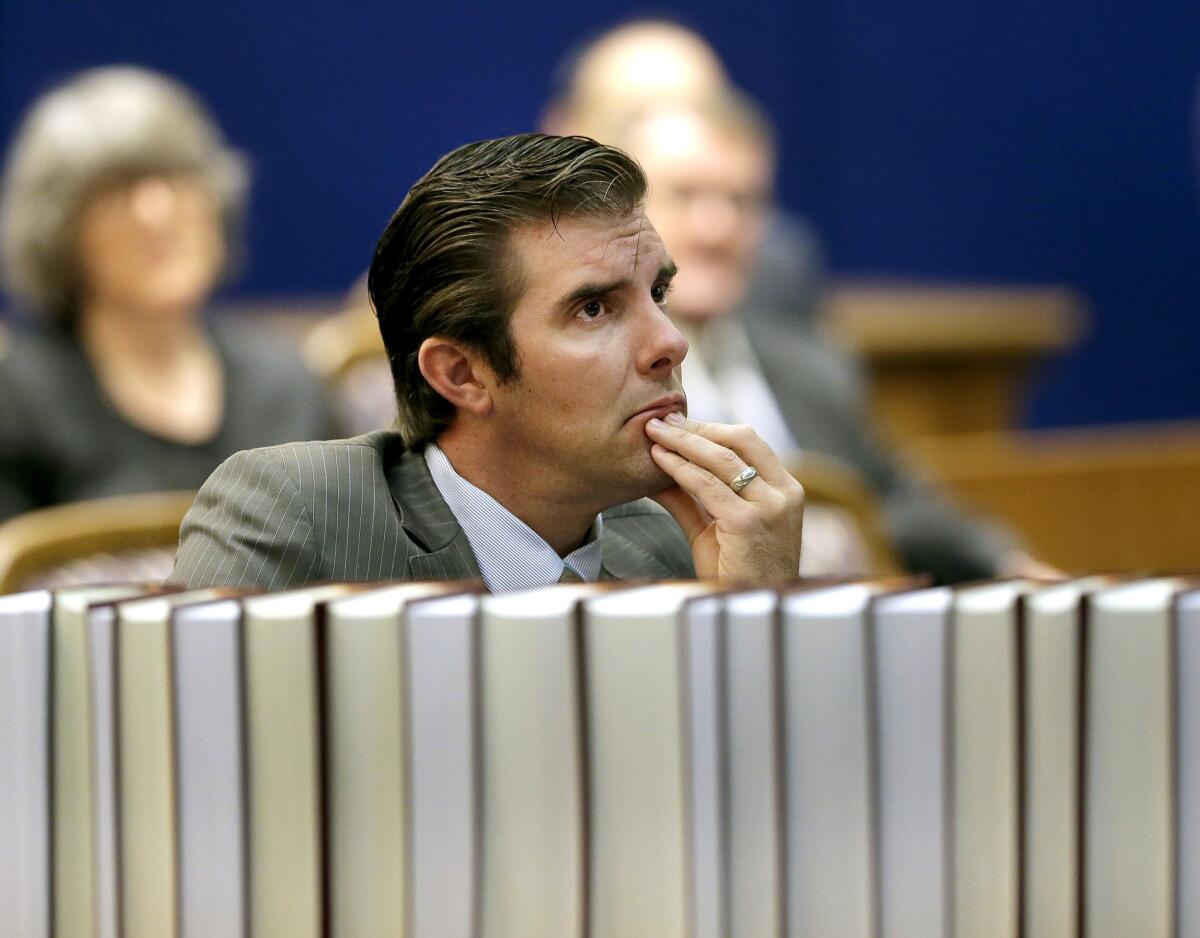In blow to GOP, Kansas Supreme Court affirms Democrat’s ballot exit

In a blow to the reelection hopes of Republican Sen. Pat Roberts, the Kansas Supreme Court on Thursday struck the name of a Democratic challenger from the November ballot, pitting the embattled incumbent against a well-funded and surging independent candidate.
Democrat Chad Taylor, a district attorney from the Topeka area, exited the race this month in a move that put independent businessman Greg Orman into a one-on-one race against Roberts. But the state’s Republican secretary of state, Kris Kobach, declined Taylor’s request to have his name removed from the ballot on technical grounds, prompting court action.
Taylor’s attorney argued this week that the Democrat complied with the law when he quit the Senate race, citing language Taylor used in a letter announcing his withdrawal.
In the court’s 10-page ruling, it said the “plain meaning” of the language used by Taylor “effectively declares he is incapable of fulfilling the duties of office if elected.”
Democrats accused Kobach of playing partisan politics, hoping to weaken Orman’s challenge by keeping Taylor’s name on the ballot and potentially splitting the anti-Roberts votes.
Roberts struggled through a difficult primary against a tea party challenger and has suffered from perceptions he had grown detached from the state after more than 30 years in Washington. With some polls showing Roberts in serious trouble, the National Republican Senatorial Committee enlisted a team of staffers this month to travel to Kansas to work on his campaign.
“This is not only a travesty to Kansas voters, but it’s a travesty to the judicial system and our electoral process,” Corry Bliss, Roberts’ campaign manager, said in a statement Thursday calling the court one comprised of “liberal activist” judges.
The majority of the justices on the court were appointed by Democratic governors.
In a news conference this week, Kobach told reporters that state law allowed him the right to appoint a replacement for the Democrat, though he did not say if he would do so. Following the ruling Thursday, Kobach said he would give the Democratic Party the opportunity to appoint its own successor by Sept. 26 - an announcement ignored by party officials, who applauded the ruling.
“Democrats now have a clear legal obligation to name a candidate to fill the vacancy on the ballot,” said NRSC spokesman Brad Dayspring.
There was another complication late Thursday when a Democrat filed suit to get the party to place a new nominee on the ballot.
Ballots are set to be printed and mailed to overseas voters in the coming days, though Kobach has said he would extend the deadline.
As control of the Senate hangs in the balance this fall, national Democrats and Republicans have focused on Kansas, a strongly Republican state, as an improbable battleground. Republicans stand a good chance of capturing the six seats needed to take control of the Senate, but a loss in Kansas would complicate their efforts.
“This is huge for Democrats, absolutely huge. It changes the dynamic of the race,” said Ken Ciboski, a political science professor at Wichita State University.
Ciboski added, “Kansas is certainly playing on the national level now.”
Roberts is not alone among Kansas Republicans facing a tough reelection fight. GOP Gov.Sam Brownback, who has faced party defections over his aggressively conservative agenda, including tax cuts that have badly strained state finances, faces a stiff challenge from Democratic state Rep. Paul Davis.
Follow @kurtisalee and email kurtis.lee@latimes.com
More to Read
Start your day right
Sign up for Essential California for news, features and recommendations from the L.A. Times and beyond in your inbox six days a week.
You may occasionally receive promotional content from the Los Angeles Times.







